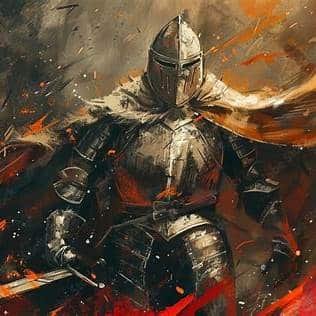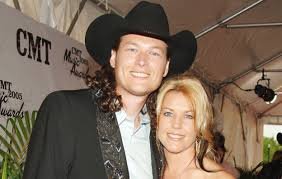Introduction: Why Ruto Age Matters
William Samoei Ruto, the President of Kenya, has been a central figure in East African politics. His age — currently 57 years — is often discussed because it positions him uniquely among leaders: young enough to be energetic, but experienced enough to command authority.
Understanding Ruto age provides insights into his journey, leadership style, and the generational shift in African politics.
Key Points:
- Ruto age symbolizes both youthful energy and seasoned experience.
- His age influences perception of his leadership at national and global levels.

Table of Contents
Early Life and Education
Born on December 21, 1966, William Ruto grew up in Sambut village, Uasin Gishu County. His early life was marked by modest beginnings, which later shaped his political messaging as a “hustler.”
He pursued his studies at the University of Nairobi, where he earned a BSc in Botany and Zoology, later advancing to postgraduate studies in Plant Ecology.
Key Points:
- Ruto’s humble upbringing connects with many ordinary Kenyans.
- His academic background shows discipline and long-term vision.
Political Rise and Career Milestones
Ruto’s political career began in the 1990s, first aligning with the Youth for KANU 1992 movement. His career path saw him transition from Member of Parliament to Cabinet Minister, Deputy President, and eventually Kenya’s fifth President in 2022.
Key Points:
- Ruto’s career showcases resilience despite political rivalries.
- His ability to reinvent himself politically is tied to his age and adaptability.
Ruto Age and Its Symbolism in Kenyan Politics
At 57, Ruto represents a generational bridge. He is younger than many African presidents, yet older than the median Kenyan population. This duality makes ruto age symbolic: old enough for wisdom, young enough for vigor.
Key Points:
- His age resonates with Kenya’s youthful population seeking change.
- Age comparisons place him strategically between older elites and younger challengers.
Achievements as Deputy President and President
During his tenure as Deputy President (2013–2022), Ruto played a significant role in government policies, infrastructure development, and agricultural reforms. Since becoming President in 2022, he has emphasized economic empowerment and Kenya’s role in climate leadership.
Key Points:
- Ruto age aligns with peak leadership capacity and decision-making power.
- His achievements balance domestic reforms with international recognition.

Controversies and Criticisms
Ruto’s career has not been without criticism. Allegations of corruption, disputes over election legitimacy, and international cases have surrounded him. His age plays into these narratives: critics argue his long political career has bred controversy, while supporters believe his experience equips him to handle challenges.
Key Points:
- Ruto age links to decades of political baggage.
- Controversies test his resilience and public trust.
Ruto Age in Comparison with Other African Leaders
Comparing Ruto age with peers reveals contrasts: Paul Kagame (66), Yoweri Museveni (79), and Hakainde Hichilema (62). Ruto stands as one of the “middle-generation” leaders — younger than long-serving incumbents but older than reformist newcomers.
Key Points:
- Ruto age puts him in a generational transition zone.
- This positioning enhances his appeal to both older and younger voters.
Public Perception and Media Coverage
Media narratives often emphasize ruto age to frame him as either “young hustler” or “seasoned strategist.” Public perception varies: younger Kenyans see inspiration, while older critics demand proof of maturity.
Key Points:
- Ruto’s age is a communication tool for both critics and supporters.
- Media coverage amplifies the symbolism of his generational identity.
Family and Personal Life
William Ruto is married to Rachel Ruto, and together they have six children. His family life projects an image of stability, with his spouse actively engaged in social causes. His age aligns with the stage of balancing family legacy with political duties.
Key Points:
- Ruto age reflects his maturity as both leader and family man.
- His personal life reinforces his public narrative of resilience.
Legacy and Future Outlook
Looking ahead, ruto age positions him with potentially over a decade of influence if he serves two terms. His legacy will hinge on whether he can deliver on promises of economic revival, social unity, and international diplomacy.
Key Points:
- His age ensures enough time to leave a lasting legacy.
- The future of Kenya’s democracy may be shaped by his leadership choices.
YouTube Video
People Also Ask
1. Why is Ruto age discussed so often?
Ruto age is central because it symbolizes the generational shift in Kenyan politics, balancing youthfulness with leadership experience. Analysts and media emphasize his age when comparing him with older African leaders.
2. How does ruto age impact his presidency?
His age positions him at the prime of leadership. At 57, he combines vigor and wisdom, appealing to a broad demographic spectrum in Kenya.
3. Is ruto age considered young in African leadership?
Yes. Compared to leaders in their late 70s or 80s, Ruto is younger. However, he is older than reformist politicians in their 40s, making him a transitional figure.
4. How does the public view ruto age?
Many young Kenyans view him as relatable, while older generations see him as an experienced but still youthful leader. His age helps bridge generational divides.
FAQ on Ruto Age
1. What is Ruto age today?
William Ruto is currently 57 years old, born on December 21, 1966.
2. Does ruto age affect his political influence?
Yes. His age reflects both experience and vitality, giving him credibility in both domestic and international arenas.
3. How does ruto age compare to other Kenyan presidents?
Ruto is younger than many of his predecessors at the time of assuming office, making him stand out as part of a new political generation.
4. Has ruto age influenced his policies?
Indirectly, yes. His policies on youth empowerment and economic reform often tie back to his relatability as a “hustler” shaped by his generation.
5. What role does ruto age play in his future legacy?
At 57, Ruto has sufficient time to build a legacy that could define Kenyan politics for decades, depending on his governance success.
Conclusion
William Ruto’s story cannot be separated from the discussion of ruto age. At 57, he embodies the dual forces of youthful ambition and seasoned strategy. His biography, achievements, controversies, and global outlook are all contextualized by his age.
For readers seeking deep political insights, explore related guides on nowgotrend.com and nowgotrending.com.




One thought on “Ruto Age: 57 Shocking Yet Inspiring Truths”